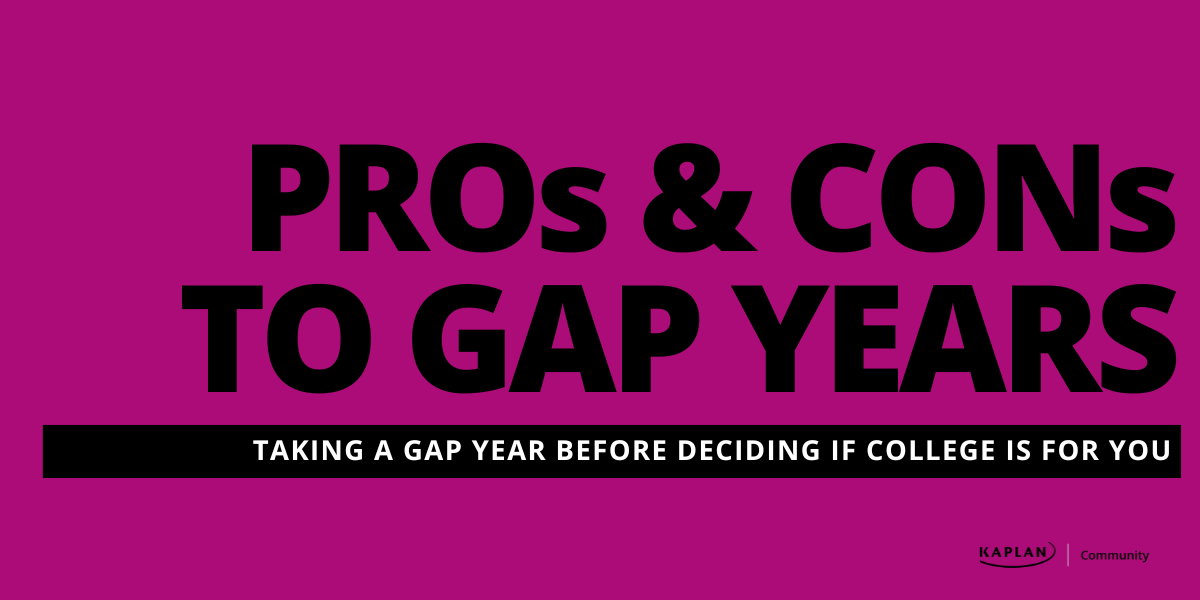📝PROs & CONs Of Taking A Gap Year Before Deciding If You Want To Go To College

Is It OK to Take a Gap Year? Pros and Cons
Yes, I think taking a gap year can be a great choice if it’s structured and intentional. Many students benefit from a year away from the classroom to gain real-world experience, travel, work, or focus on personal growth. That said, it’s not the right move for everyone.
Pros of a Gap Year:
- Time to mature and gain clarity before college
- Opportunity to travel, work, intern, or serve
- Can improve motivation and perspective going into college
- Helps build independence and practical skills
Cons of a Gap Year:
- Risk of losing academic momentum
- Applying to college post-graduation can be tricky without counselor and teacher support
- Can feel isolating without structure or community
- Unstructured gap years often lack impact
My advice is to still apply to college during your senior year, even if you’re planning a gap year. That way, you’ll have access to your school counselors and teachers for recommendation letters and documents. Once accepted, you can request a deferral. Many colleges allow, and even encourage, this now. Just make sure to defer only one school, since it’s not ethical to commit to more than one.
I don’t recommend using a gap year as a fallback if you didn’t get into your top-choice college. In that case, it’s usually better to enroll at another college and apply as a transfer student. If your goal is to become a more competitive applicant academically, you’ll likely be better off starting at a community college or another university. Many colleges offer access to honor societies, research opportunities, and strong support systems. Just do your research; colleges vary a lot in terms of resources.
On the other hand, if your academics in high school were strong and you’re taking a gap year to build experience, like interning at a hospital if you’re interested in medicine, that can be a great choice. Just be sure to plan it thoughtfully. You’ll still need to secure teacher recommendations and talk to your counselor about accessing your transcripts and school forms later on.
There’s a dedicated space on the Common App to explain a gap year, so use that to help admissions officers understand your decision. Done well, a gap year can make you stand out. Just remember that you’ll be applying to college during your gap year, typically between November and January, so it’s important to start executing your plan early.
Bottom line: A gap year can be a great idea, but only if you plan ahead, stay organized, and make the year count.
